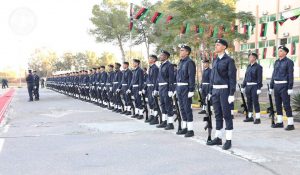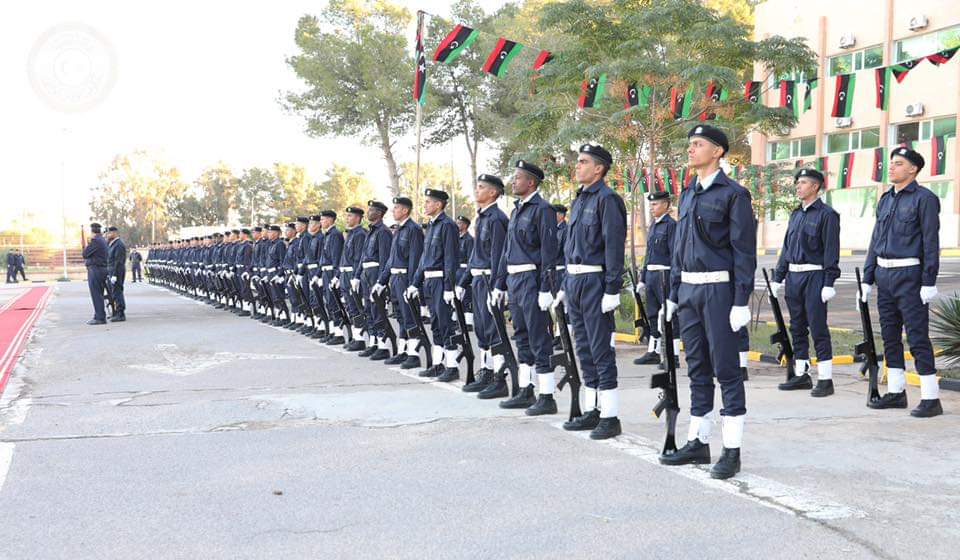By Sami Zaptia.

London, 13 December 2018:
Three recently rehabilitated police training facilities in Tripoli were inaugurated today to train 1,800 officers.
The rehabilitated facilities – the Police Technical School, the Judicial Police Training Institute and the Police College – will house training for Libyan police and judicial police officers.
Speaking at the inauguration, head of Presidential Council and Government of National Accord Faiez Sarraj affirmed the importance of a revitalized police force, adding that “a trained, disciplined and regular force is crucial for strengthening rule of law in the country and advancing the implementation of the new security arrangements in the capital.”
During the event, the GNA and the UN announced the launch of a training programme for 1500 police and 330 judicial police officers.
Over the coming month, police and judicial police officers will be trained based on new curricula that integrate human rights principles with effective policing methodologies and techniques. Their training will also include community policing, sensitivities towards vulnerable communities such as internally displaced persons and case management, the press statement explained.
Speaking to graduates, UNSMIL head Ghassan Salame said that “This is an important day, a great day. The UN is proud to be given the opportunity to contribute to the revitalization and boosting of the police force. You are responsible for providing security and safety of the Libyan people, who want to live without fear and intimidation.”
The police facilities were rehabilitated by the Policing and Security Joint Programme, implemented by UNSMIL and UNDP in partnership with Ministries of Interior and Justice.
The programme aims to help develop national capacities to improve safety and security in Libya through more effective, community-oriented policing and rule of law services.
The programme has been initiated in Tripoli with funding contributions from the Netherlands, United States, Germany, and UNDP HQ as well as the Government of National Accord to contribute to Libya’s security arrangements.
It will be recalled that the Serraj Tripoli-based administration announced new “Security Arrangements” in September in response to the south Tripoli militia fighting ceasefire.
The “Security Arrangements” were in fact enshrined in the Skhirat Libyan Political Agreement (LPA) of 2015 and were simply relaunched by Serraj this summer.
The LPA stipulates that accountable, regular security forces take over security from militias in Tripoli and across the whole country.
In practice, the Serraj administration has failed to implement this, and rather had become dependent on Tripoli’s main militias for its continued existence.
The continued existence and dominance of militias in Tripoli and across Libya as a whole has discouraged and stunted the development of regular security forces.
The non-existence of politically accountable and professional state security forces enforcing the state’s legitimate political will and rule of law is seen as a prerequisite for the creation of the new post-Qaddafi Libyan state.








